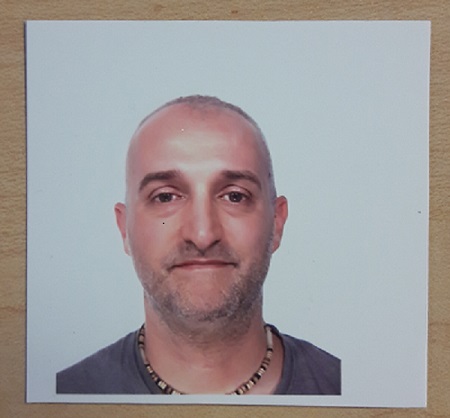Studying at the University of Verona
Here you can find information on the organisational aspects of the Programme, lecture timetables, learning activities and useful contact details for your time at the University, from enrolment to graduation.
Academic calendar
The academic calendar shows the deadlines and scheduled events that are relevant to students, teaching and technical-administrative staff of the University. Public holidays and University closures are also indicated. The academic year normally begins on 1 October each year and ends on 30 September of the following year.
Course calendar
The Academic Calendar sets out the degree programme lecture and exam timetables, as well as the relevant university closure dates..
| Period | From | To |
|---|---|---|
| Sem. IA | Sep 25, 2017 | Nov 11, 2017 |
| Sem. IB | Nov 13, 2017 | Jan 20, 2018 |
| Sem. IIA | Feb 26, 2018 | Apr 21, 2018 |
| Sem. IIB | Apr 23, 2018 | Jun 9, 2018 |
| Session | From | To |
|---|---|---|
| Sessione Invernale | Jan 22, 2018 | Feb 24, 2018 |
| Sessione Estiva | Jun 11, 2018 | Jul 28, 2018 |
| Sessione Autunnale | Aug 27, 2018 | Sep 22, 2018 |
| Sessione Straordinaria | Jan 14, 2019 | Feb 16, 2019 |
| Session | From | To |
|---|---|---|
| Sessione Estiva | Jul 16, 2018 | Jul 21, 2018 |
| Sessione Autunnale - Servizio Sociale | Nov 9, 2018 | Nov 9, 2018 |
| Sessione Primaverile | Apr 1, 2019 | Apr 6, 2019 |
| Period | From | To |
|---|---|---|
| All Saints Day | Nov 1, 2017 | Nov 1, 2017 |
| Immaculate Conception | Dec 8, 2017 | Dec 8, 2017 |
| Christmas break | Dec 22, 2017 | Jan 7, 2018 |
| Easter break | Mar 30, 2018 | Apr 3, 2018 |
| Liberation Day | Apr 25, 2018 | Apr 25, 2018 |
| Labour Day | May 1, 2018 | May 1, 2018 |
| Patron Saint Day | May 21, 2018 | May 21, 2018 |
| Republic Day | Jun 2, 2018 | Jun 2, 2018 |
| Summer break | Aug 13, 2018 | Aug 18, 2018 |
Exam calendar
Exam dates and rounds are managed by the relevant Humanistic Studies Teaching and Student Services Unit.
To view all the exam sessions available, please use the Exam dashboard on ESSE3.
If you forgot your login details or have problems logging in, please contact the relevant IT HelpDesk, or check the login details recovery web page.
Should you have any doubts or questions, please check the Enrollment FAQs
Academic staff
 stefania.annechini@univr.it
stefania.annechini@univr.it
 gaia.cetrano@univr.it
gaia.cetrano@univr.it
 roberto.dallachiara@univr.it
roberto.dallachiara@univr.it
 giorgia.decarli@univr.it
giorgia.decarli@univr.it
 annamaria.giarola@univr.it
annamaria.giarola@univr.it
Povolo Luciana
 antonella.salvan@univr.it
antonella.salvan@univr.it
Strano Silvana
 silvana.stranoligato@univr.it
silvana.stranoligato@univr.it
 +39 045 8028856
+39 045 8028856
 giorgio.zoccatelli@univr.it
giorgio.zoccatelli@univr.it
Study Plan
The Study Plan includes all modules, teaching and learning activities that each student will need to undertake during their time at the University.
Please select your Study Plan based on your enrollment year.
1° Year
| Modules | Credits | TAF | SSD |
|---|
2° Year activated in the A.Y. 2018/2019
| Modules | Credits | TAF | SSD |
|---|
3° Year activated in the A.Y. 2019/2020
| Modules | Credits | TAF | SSD |
|---|
| Modules | Credits | TAF | SSD |
|---|
| Modules | Credits | TAF | SSD |
|---|
| Modules | Credits | TAF | SSD |
|---|
Legend | Type of training activity (TTA)
TAF (Type of Educational Activity) All courses and activities are classified into different types of educational activities, indicated by a letter.
Statistical methods for the social sciences (2017/2018)
Teaching code
4S02345
Teacher
Coordinator
Credits
6
Language
Italian
Scientific Disciplinary Sector (SSD)
SECS-S/05 - SOCIAL STATISTICS
Period
Sem. IIB dal Apr 23, 2018 al Jun 9, 2018.
Learning outcomes
The course aims to familiarize students with the principles and logic of scientific method, by introducing some basic concepts and tools in empirical research. Course objective is to provide a statistical vision of reality: starting with the observed variability of a phenomena, it develops a reflection on the variability and errors inherent to the process of observation and measurement, in order to understand how all the empirical knowledge is actually of sampling nature. It takes place as well as mindset and statistical tools are needed to address the study of any phenomenon.
The first part of the course is structured around the concept of statistical distribution, and describes the methods for the analysis and synthesis of the information collected. In the second part of the course deals with the analysis of dependence between two variables, and discusses the concept of causality.
Program
- The principles of scientific method and the validity of a research. By formulating the research problem to hypothesis testing. Observation and measurement processes. Types of variables and measurement scales. The concept of distribution.
- Study of the distribution of a variable and summaries of information. Frequency tables and graphical representations. Grouping data into classes. Indices of centrality: the position and algebraic averages. Indices of variability.
- Transformations of variables. Standardization. Synthetic compound indexes.
- The normal distribution. Properties and applications.
- Analysis of the dependence between two variables. Frequency of double-entry tables. Conditional frequencies. Independence and association. Indices of association. Dependence on average. Correlation. The linear regression. The method of least squares. Interpretation and evaluation of the model.
| Author | Title | Publishing house | Year | ISBN | Notes |
|---|---|---|---|---|---|
| Capiluppi C. | Appunti di Statistica Sociale | Aracne | 2012 | 978-88-548-5894-7 | |
| Borra S., Di Ciaccio A. | Statistica, metodologie per le scienze economiche e sociali | McGraw-Hill | 2004 | 8838661626 |
Examination Methods
The exam consists of a written test (Test), and a following oral exam for the confirmation of the mark.
Written Test (Test)
The written exam takes place in a computer classroom but does not require computer skills: the PC is used only to display the questions and enter the responses, after writing answers/solutions on the paper sheets.
The test is presented as a multiple response test but is a normal written exam, which requires a complete, orderly and readable written answer for all the exercises and questions to which an answer is entered in the computerized questionnaire. Responses to theoretical questions, and even questions that do not require computations, must be adequately explained and justified in writing too.
For the test to be valid, it is necessary to answer 2/3 of the questions (e.g. 20/30). Wrong responses are penalized. Unanswered responses (or with not correct writing) are invalid: any responses that are inserted in the computerized questionnaire but are not explained in the writing, involve a downward revision of the mark, and even its invalidation. Incomplete or incomprehensible written responses are considered invalid.
In the Test there are questions of different types:
- Theoretical questions: assess the level of understanding of statistical and methodological concepts
- Calculation exercises: indices or other statistical measures from numeric data provided in the text
- Theoretical exercises: they require linkages between studied arguments, definitions and properties, or to elaborate algebraic expressions to derive results in symbolic form
- Problems of various kinds: solvable with the help of statistical concepts and properties
Oral Test
Overcoming the Test gives you access to the oral test. The oral examination is only accessible after the test mark is positive. The oral is compulsory for everybody, for the confirmation of the mark.
The oral exam consists of verifying the written responses to the Test for the confirmation of the mark. In the oral exam concepts, measures and statistical indices may, if necessary, be further deepened in terms of understanding and interpreting. During the oral exam it may also be required to perform short, theoretical and computational exercises, of the same type as in the written test.
On line didactic matherials

| Exam Info

Math Refresh
| 
Lessons Calendar
| 
Exams Calendar – Shifts and Results
| |
Type D and Type F activities
Modules not yet included
Career prospects
Module/Programme news
News for students
There you will find information, resources and services useful during your time at the University (Student’s exam record, your study plan on ESSE3, Distance Learning courses, university email account, office forms, administrative procedures, etc.). You can log into MyUnivr with your GIA login details: only in this way will you be able to receive notification of all the notices from your teachers and your secretariat via email and soon also via the Univr app.
Student mentoring
Linguistic training CLA
Gestione carriere
Practical information for students
Documents
| Title | Info File |
|---|---|
|
|
pdf, it, 325 KB, 02/05/23 |
|
|
pdf, it, 212 KB, 02/05/23 |
|
|
pdf, it, 131 KB, 02/05/23 |
Graduation
Documents
| Title | Info File |
|---|---|
|
|
pdf, it, 99 KB, 13/10/23 |
|
|
pdf, it, 101 KB, 10/04/24 |
List of theses and work experience proposals
| theses proposals | Research area |
|---|---|
| Proposta tesi | Various topics |
Assistente Sociale
Comune e Università di Verona collaborano per la formazione alla professione di assistente sociale.
Professione Assistente Sociale
Pagina aggiornata il 18/1/2022
Stage e Tirocini
Le attività̀ di tirocinio degli studenti si svolgono presso strutture esterne, convenzionate con l’Università degli Studi di Verona ai sensi delle vigenti disposizioni in materia. Nelle strutture esterne gli studenti svolgono le attività di tirocinio sotto la responsabilità di un assistente sociale (Tutor-supervisore), appartenente a dette strutture, coordinato a sua volta dal responsabile del tirocinio presso il Corso di Studio.
In assenza di un assistente sociale, operante nella struttura esterna, il Collegio didattico, per quanto di competenza, decide, su proposta dei responsabili del tirocinio, in ordine alle condizioni per l’effettuazione o la prosecuzione delle attività di tirocinio degli studenti interessati. Le attività di tirocinio sono obbligatorie per almeno 450 ore.
Il Collegio didattico, in deroga alle disposizioni del presente articolo, può consentire a studenti che si trovino in particolari condizioni, in specie se disabili, lavoratori o impegnati in organismi collegiali dell’Università degli Studi di Verona, di non ottemperare in parte all’obbligo di frequenza alle attività di tirocinio, predisponendo forme alternative di tirocinio, anche tramite supporti telematici e multimediali interattivi.
I responsabili delle attività di tirocinio presso il Corso di Studio, anche avvalendosi di appositi collaboratori o tutori esterni, accertano la presenza degli studenti presso le rispettive strutture. A tal fine utilizzano un apposito libretto di frequenza per ciascuno studente.
Al termine dell’attività di tirocinio, lo studente deve presentare una relazione scritta al responsabile di tale attività presso il Corso di Studio. Lo studente elabora la relazione scritta, controfirmata dal Tutor-supervisore. La relazione finale viene valutata dal responsabile del tirocinio presso il Corso di Studio e deve tenere conto degli obiettivi prefissati dal Collegio didattico.
La valutazione viene attribuita al tirocinio nel seguente modo: sufficiente = 1; buono = 2; ottimo = 3; eccellente = 4 e verrà aggiunta alla media dei voti del curriculum al momento della discussione della tesi.
Gli Uffici della Direzione Didattica e Servizi agli Studenti predispongono la documentazione necessaria allo svolgimento delle attività̀ di tirocinio, comprese attestazioni e certificazioni.
Nel caso in cui lo studente partecipi a programmi di mobilità internazionale, le attività̀ di tirocinio vengono regolamentate come segue:
A – Lo studente svolge il Tirocinio presso la sede estera.
Se lo studente svolge il Tirocinio all’estero si ritengono assolti gli obbligo relativi al Laboratorio se:
- - lo studente aggiorna il proprio docente/tutor con brevi relazioni mensili da inviare mezzo mail, sull’andamento del lavoro svolto presso la sede estera;
- - produce una relazione finale completa del tirocinio svolto.
La valutazione finale del laboratorio di guida al tirocinio sarà̀ effettuata da parte del tutor del laboratorio sulla base della relazione dello studente tenendo conto della eventuale valutazione da parte del supervisore estero.
B – Lo studente non svolge il Tirocinio presso la sede estera.
Se lo studente non svolge il Tirocinio nella sede estera e lo deve fare al rientro:
lo studente effettua uno/due incontri individuali iniziali con il docente/tutor in cui predisporre quanto necessita per l’avvio del tirocinio e nei quali verranno forniti materiali, griglie ed eventuali testi di riferimento;
invia brevi relazioni mensili sull’andamento del tirocinio che sarà svolto in Italia al di fuori del periodo in cui si tiene il laboratorio di guida al tirocinio;
produce la relazione finale completa del tirocinio svolto”.
- Tutte le informazioni in merito agli stage per futuri studenti sono disponibili alla pagina Stage e tirocini.
- Tutte le informazioni in merito agli stage per studenti iscritti sono pubblicate in MyUnivr - come fare per - stage e tirocini.
- Tutte le informazioni in merito agli stage per le aziende sono disponili alla pagina Stage e tirocini per azienze.



















